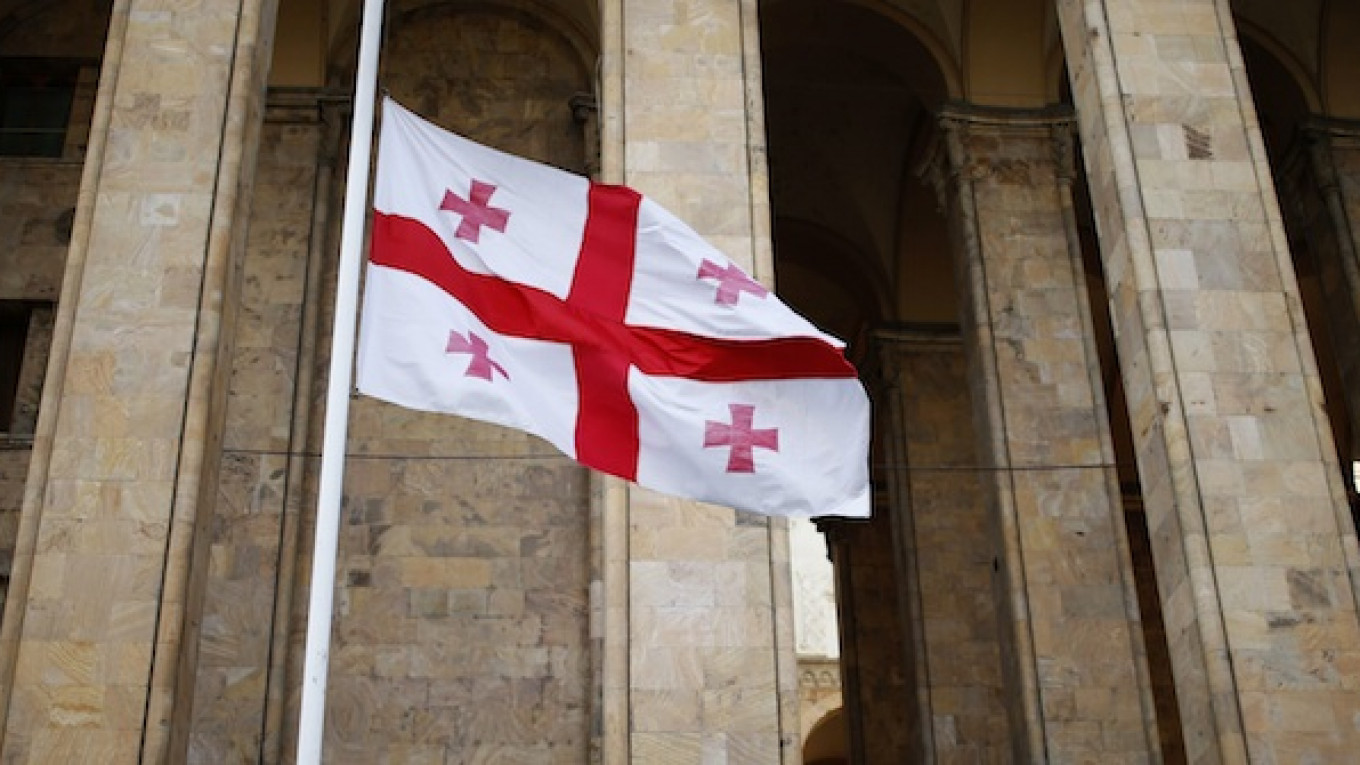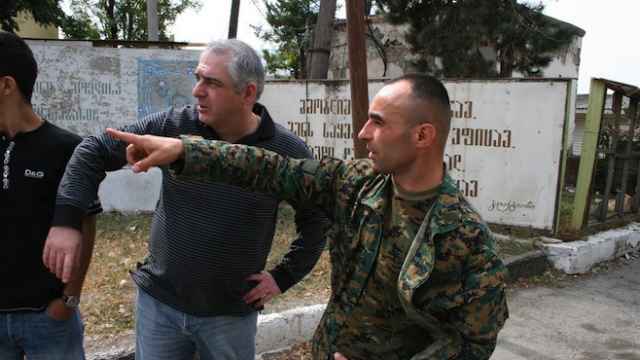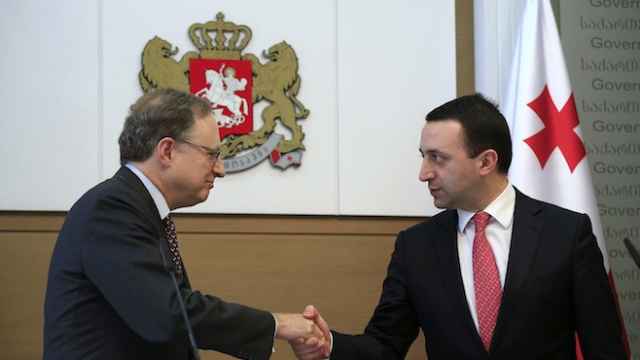BRUSSELS — Russia is moving ahead with the "creeping annexation" of two breakaway Georgian regions as part of an aggressive strategy to broaden its influence in the region, Georgia's foreign minister has said.
In talks with EU and NATO officials in Brussels this week, Tamar Beruchashvili said she had underlined Georgia's concern about agreements Moscow has signed deepening integration with the Georgian regions of Abkhazia and South Ossetia.
"This is an extremely dangerous development not only for Georgia's security, but we believe it's very dangerous for wider European security, particularly considering the war in Ukraine," she said Thursday in an interview.
Beruchashvili, who joined Georgian Prime Minister Irakly Garibashvili for talks with EU officials in Brussels on Thursday, said Russia's actions amounted to a "creeping annexation" of the two breakaway regions.
She added it was part of a bigger picture of Russian aggression in the neighborhood, with Moscow seeking to expand its spheres of influence. Georgia was "part of the same puzzle" as Ukraine, where Russia annexed Crimea last year and where it is accused by NATO of supporting pro-Russian separatists in the east, she said.
Beruchashvili also denounced a military buildup in South Ossetia and Abkhazia, where she said Russia had about 11,000 military personnel.
Russia's aim was to "create and maintain frozen conflicts and … hamper the implementation of the sovereign decision of countries regarding their foreign policy choices," Beruchashvili said, referring to Georgia's aspiration to join the EU and NATO.
Georgia and Russia fought a war in 2008 over South Ossetia and Abkhazia. After it ended, Moscow recognized both regions as independent countries.
Moscow signed a strategic partnership agreement with Abkhazia last November and says it wants to sign a similar document to integrate its security forces and military with those of South Ossetia. Russia signed a border agreement with South Ossetia last week.
European Council President Donald Tusk told reporters after meeting Garibashvili that the treaty between Russia and Abkhazia "violates Georgia's sovereignty and territorial integrity."
Beruchashvili said she hoped the West would remain united and strong in the sanctions it imposed on Russia over Ukraine.
She said she expected that the European Commission, the EU's executive body, would recommend at a summit with former Soviet states in Latvia in May that the EU allow Georgian citizens to visit the EU's passport-free Schengen area without a visa.
This would make holding a Georgian passport more attractive for people from Abkhazia and South Ossetia, she said.
A Message from The Moscow Times:
Dear readers,
We are facing unprecedented challenges. Russia's Prosecutor General's Office has designated The Moscow Times as an "undesirable" organization, criminalizing our work and putting our staff at risk of prosecution. This follows our earlier unjust labeling as a "foreign agent."
These actions are direct attempts to silence independent journalism in Russia. The authorities claim our work "discredits the decisions of the Russian leadership." We see things differently: we strive to provide accurate, unbiased reporting on Russia.
We, the journalists of The Moscow Times, refuse to be silenced. But to continue our work, we need your help.
Your support, no matter how small, makes a world of difference. If you can, please support us monthly starting from just $2. It's quick to set up, and every contribution makes a significant impact.
By supporting The Moscow Times, you're defending open, independent journalism in the face of repression. Thank you for standing with us.
Remind me later.






